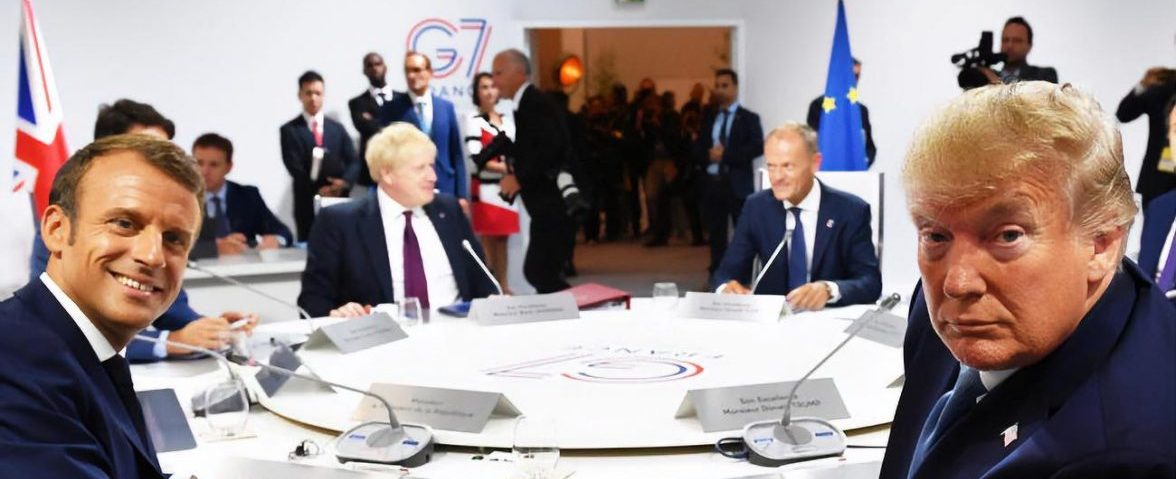US President Donald Trump has taken a surprisingly consistent stand on a number of controversial topics. Recently, he has proposed returning Russia to the G7, thereby raising again the issue he highlighted at the beginning of his presidential term in early 2017. It was one of the reasons for accusing him of collusion with Moscow. Trump’s other proposals included the lifting of the anti-Russian sanctions. What will come of this proposal if Trump continues to persevere?
On the other hand, the above does not mean that the US president has a deep sympathy for Russia. But he probably thinks that the G7 will remain a global center for adopting and coordinating decisions, which allegedly cements the leading role of the West in guiding global processes. Trump is probably advocating Russia’s return to the group so as to make it part of the Western system and to prevent it from teaming up with China.
Trump’s interest appears strictly pragmatic in this context. But the age of unchallenged Western domination, which the US president is trying to keep back, has long become a thing of the past and it is unlikely that it can be revived. At the same time, the easing of sanctions against Russia would be welcome. Symbolically, this would turn many pages of the Ukrainian crisis. However, the importance of the G7 as an organization is no longer unique or universal. There are more important formats, such as the G20, not to mention the UN Security Council, which continues to play a key role in global governance.
It is notable that Moscow has avoided a clear answer on whether or not it would rejoin the G7. Russia has objective reasons for skepticism: it never felt quite at ease in the group and was often forced to prove its right to be a member. To put it more bluntly, Russia was mostly chided for its alleged faults in the group. This is why Moscow has avoided saying that it would appreciate the full resumption of the leading Western powers’ club, hinting that the world has become more complicated and less Western-centric.
It is even possible that Russia will refuse to rejoin the G7, if it receives such an offer, because the only solid foundation of the group is the idea of Western solidarity. Some club members are at odds with each other: Britain’s uncoordinated exit from the EU has soured its relations with the other member states, while Japan has its eyes on East Asia, where it can realize its ambitions more easily through cooperation with the United States. Moscow’s return to the G7 would create the impression that Russia is returning to the West and reaffirm Western leadership on the international stage.
It was futile to expect major results from the Biarritz summit. For the past 10 years at the least, the G7 has been looking for a new basis for unity to complement the member states’ common desire to continue to play the leading role in the world. However, the international environment is becoming ever more complicated and competitive, which is why all countries, including allies, have started upholding their national interests firmly and even harshly. On the other hand, it would be premature to say that the G7 unity has been disrupted and the club has fallen apart. According to British traditions, club members can be divided over many issues yet they treasure the opportunity to exchange opinions.
As for Trump’s excessive behavior, it is more likely the result rather than the cause of the problems that have accumulated in the West, contrary to what the media keep saying. Donald Trump thinks that his activities can stop the transitioning of power from the West to the East. The trouble is that he is not trying to mobilize the collective efforts of the Western bloc; his actions are only intended to uphold America’s narrow national interests. In this sense, he stands apart from the other G7 members.
However, the role of the G7 started waning long before Trump. The growing polycentrism of the world has increased the significance to such groups as the G20, if only because it unites the world’s largest economies. If we assume that the West can only preserve its leadership through the concerted efforts of the leading powers, the blame is on Trump. But if we are witnessing the objective revival of realism in international affairs, when the national interests of each country constitute the basis for decision making, Trump is the first Western leader to correctly formulate the problem and to start looking for a solution.
Original publication valdaiclub.com












